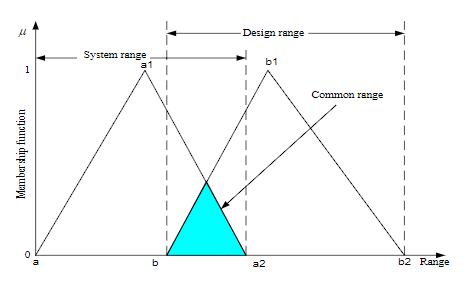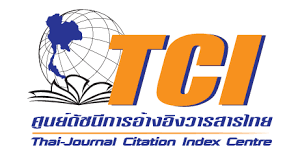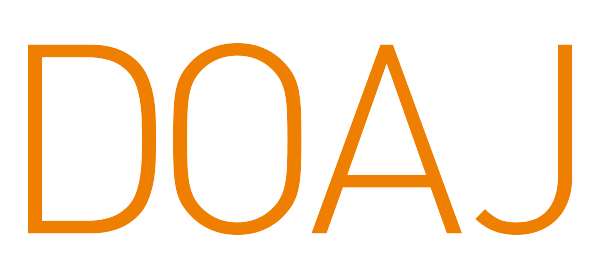Selection of Outsourcing Relationship for a Maintenance System Using Fuzzy Axiomatic Design Principles and Fuzzy VIKOR
doi: 10.14456/mijet.2022.1
Keywords:
Fuzzy axiomatic design principles, fuzzy VIKOR, maintenance vendor, manufacturing system, fuzzy logicAbstract
Maintenance outsourcing potentially saves cost, improves efficiency and enhances the company's competitive advantage. Yet in the instant food industry, the practice is difficult to implement with high failures of outsourcing relationships. To fill this research gap, this paper proposed a fuzzy axiomatic design (FAD) method coupled with fuzzy VIKOR (Vlse Kriterijumska Optimizacija I Kompromisno Resenje) to track uncertainty and imprecision to select external service providers in outsourcing relationships. The VIKOR method is coupled to the FAD method at the introduction of fuzzy triangular members based on the selection pillar indices of cost, equipment, vendor, production and human aspects. Four relationships are defined, namely support, alignment, reliance and alliance while the selection indices were measured against them. By weights, the model evaluated the relationships as consisting of support (20.25%), alignment (25.15%), reliance (25.19%) and alliance (29.41%). The VIKOR indices for the relationships are support (0.0141), alignment (0.0431), reliance (1.000) and alliance (0.9849). The conclusion was that alliance outsourcing was the least desired outsourcing relationship for the system.
References
2. Drury C.G., Kritkausky K. and Wenner C., 1999. Outsourcing aviation maintenance: Human factors implications, Proceedings of the Human Factors and Ergonomics Society, 43rd Annual Meeting, pp.762-766.
3. Ighravwe D.E. and Oke S.A. (2016). A fuzzy-grey-weighted aggregate sum product assessment methodical approach for multi-criteria analysis of maintenance performance systems. International Journal System Assurance and Engineering Management. DOI 10.1007/s13198-016-0554-8.
4. Khandekar A.V. and Chakraborty S. (2015). Selection of material handling equipment using fuzzy axiomatic design principles. Informatica, Vol. 26, No, 2, pp. 259-282.
5. Kulak O. and Kahraman C. (2005). Multi-attribute comparison of advanced manufacturing systems using fuzzy vs. crisp axiomatic design approach. International Journal of Production Economics, 95: 415-424.
6. Murthy D.N.P., Karim M.R., Ahmadi A., 2015, Data management in maintenance outsourcing, Reliability Engineering and System Safety, Vol. 142,pp. 100-110.
7. Nili M., Shekarchizadeh A. and Reza shojaey R. (2012). Outsourcing of maintenance activities in oil industry of Iran benefits, risks and success factors. Business and Management Review, Vol. 2, No. 5, pp. 20-36.
8. Nisel S. (2014). An extended VIKOR method for ranking online graduate business programs. International Journal of Information and Education Technology, Vol. 4, No. 1, pp. 103-107.
9. Gomez J.F., Parra C., Gonzalez C., Crespo A. and Moreu de Leon A. (2009). Outsourcing maintenance in services providers. Safety, Reliability and Risk Analysis: Theory, Methods and Applications, pp. 829-836.
10. Girubha R.J. and Vinodh S. (2012). Application of fuzzy VIKOR and environmental impact analysis for material selection of an automotive component. Materials and Design, 37, 478-486.
11. Ordoobadi S. (). Development of a Decision Model for Strategic Outsourcing.
12. Park J.H., Cho H.J. and Kwun Y.C. (2011). Extension of the VIKOR method for group decision making with interval-valued intuitionistic fuzzy information. Fuzzy Optimisation and Decision Making, Vol. 10, pp. 233-253.
13. Suh N.P. (1990). The principles of design. New York: Oxford University Press.
14. Suh N.P. (2003). Introduction to Axiomatic Design Principles, In Complexity: Theory and Applications.
15. Taylor S. (2012). Outsourcing facilities management: The effects on building maintenance. 48th ASC Annual International Conference Proceedings
16. Kishore R., Rao H.R., Nam K., Rajagopalan S. and Chaudhury A. 2003. A Relationship Perspective on IT Outsourcing. Communications of the ACM, Vol. 46, No.12, pp. 86-92.
17. Campbell J. (1995). Uptime, strategies for excellence in maintenance management. Portland, Oregon. Productivity Press.
18. Mercer W.B. (2009).Evaluation of the Outsourcing Decisions for Power Station Operations and Maintenance Services. Athabasca University Centre for Innovative Management.
19. Khandekar A.V. and Chakraborty S. (2014). Material Handling Equipment Selection using Fuzzy Axiomatic Design Principles. 5th International & 26th All India Manufacturing Technology, Design and Research Conference (AIMTDR 2014) December 12th-14th, 2014, IIT Guwahati, Assam, India.
20. Chen S.H. and Hsieh C.H. (). Representation, ranking, distance, and similarity of L-R type fuzzy number and application. Australian Journal of Intelligent Information Processing Systems, Vol. 6, No. 4, pp. 217-229.

Downloads
Published
How to Cite
Issue
Section
License
Copyright (c) 2021 Engineering Access

This work is licensed under a Creative Commons Attribution-NonCommercial-NoDerivatives 4.0 International License.








